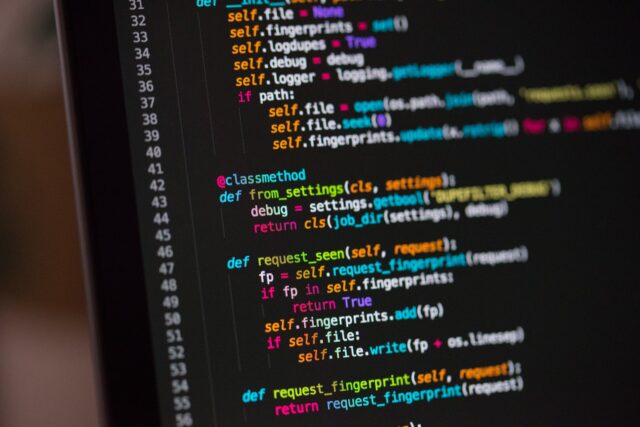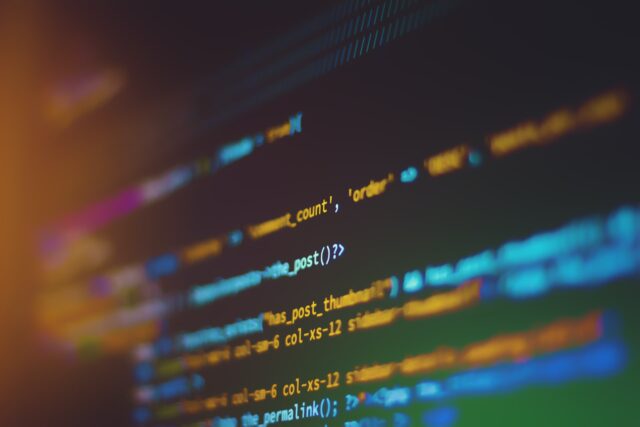
Many beginners choose Python as their first language since it is quite simple to learn. There are plenty of free resources and books online that allow you to learn it. You can start writing simple Python programs from the first day. You can also enroll in many courses to get in-depth knowledge about this language. It is possible to develop an application if you learn how to code.
Python is suitable for solving various tasks and is compatible with all operating systems from Ubuntu to iOS. Today we’ll talk about the pros and cons of this language and where it should be applied. You must be aware of its benefits, real-time applications, and suitable enough to use it. After getting enough knowledge, you can easily engage yourself in the learning process. Let us get started.
Benefits of Python

Python is an interpreted language. That means that it does not compile and looks like a plain text file before launch. You can write the code anywhere, even in a simple Notebook app. However, you would usually use PyCharm, PyDev, or KomodoIDE to write and interpret Python code.
- The main benefits of Python are:
- Simple, obvious syntax;
- Dynamic typing;
- No need to use brackets that are often confusing;
- Automatic memory allocation;
- Active community;
- Many supported libraries.
Disadvantages of Python
Now let us talk about the disadvantages. The programs are considered to be slow. They work perfectly well for some tasks, for example, machine learning. But Python is not the best choice for mobile applications. It is better to use other languages if you are writing a native application for iOS or Android. Possible cons of Python are:
- Python is a bit slow and can become unwieldy for large and complex applications;
- It is a high-level language, which is not suitable for writing hardware programs;
- For some tasks, implicit memory allocation can be a drawback;
Where to Use Python?

This programming language can be used for a variety of tasks:
Data Science
Python is well-suited for ML. There are plenty of libraries that support different machine learning algorithms and simplifies building the programs from scratch. Moreover, it is a great tool for statistical analysis and visualization.
With Python’s help, you can prepare data for ML modeling conducting data quality assessment, data clearing, and data transformation. For example, one of the most powerful tools for data preprocessing in Python is Anaconda Navigator.
Web Development
It is commonly used in web development. To work with it, you can use Django or Flast. Python is quite useful when developing landing pages and medium-scale websites. Parsers are also written in Python for collecting information on the Internet.
Software Development

Although the language cannot be compiled, it is used to create desktop programs. Some Ubuntu components, YouTube, Reddit, Google, and Instagram, are written in Python.
Scripting
Python is suitable for writing plugins and scripts for ready-made programs. For example, to implement game logic or create additional modules. Scripts in this language can also be embedded in programs in other languages to automate any tasks.
Education and Training

Python is a common programming language, which is now taught in many schools and colleges. Beginners learn basic syntax to create small programs. In many companies, Python is used to code advanced programs. Therefore, learning this coding language has become important in various educational institutes.
Graphic Designing and Image Processing
It is possible to develop 2-dimensional image applications, such as Scribus, GIMP, Inkscape, Shop Pro, and much more. If you want to design and create 3D images, you can use this programming language in various tools like Maya, Blender, Lightwave, etc. It is quite effective in the field of graphic designing and image processing.
Developing Operating Systems

Python is used to develop Linux-based operating systems. Anaconda installer of Red Hat and Ubiquity installer of Ubuntu are coded in this programming language. Generally, coders use the combination of C and Python together for developing different types of operating systems.
Machine Learning and Artificial Intelligence
There is a need for a secure and stable programming language that helps in handling all the operations in the development of conventional software. Many data professionals prefer this coding language for creating and managing all the AI projects. A coder can get various libraries in which there are pre-written codes. Due to the independence of the platform, one can use it to develop an amazing tool for building all the Machine Learning applications.
Creating a Graphical User Interface

There is a collection of frameworks and toolkits in Python, and it is possible to create a functional GUI (Graphical User Interface). With various processing tools, you can work on different operating systems, creating desktop applications, etc. It is easy to code by adding simple syntax in the framework.
Development of Games
Python is an effective programming language for designing and coding various types of games. It is possible to develop interactive games with 3D graphics. A coder can use a collection of libraries to develop games. You can design any game of any level for newbies to experienced players.
Who Uses Python?
Considering the benefits of Python, it’s no surprise that many large IT companies use Python.
- Amazon and Spotify use Python to analyze user data, sell information, and develop personalized recommendations.
- Walt Disney uses this language as a scripting language for animation.
- YouTube and Instagram are written entirely in this language.
- Netflix built its referral service from scratch in Python.
- Autodesk creates animations in its Maya 3D animation editor using Python. The Pixar studio also uses the language.
Conclusion
Python is a universal language that can be used in many fields. It is logical and easy to learn even if you have zero programming experience. Among the disadvantages of this language are the slow speed of operation and its dependency on system libraries. However, both small and large companies successfully overcome these limitations and apply it in their projects.
It is possible to code any application if you know how to program using this language. You can progress from the beginner level to the advanced level. With experience, you can become an expert and code various things like games, operating systems, graphical user interfaces, artificial intelligence applications, and much more.
It is important to enroll in courses to get in-depth knowledge about this language. Go through all the benefits, pros, cons, real-time applications, etc. As mentioned earlier, you can think about initiating in getting the required knowledge of Python. Get enough skills and start coding what you like for any platform. Learn more and become a coding expert in Python programming language.












